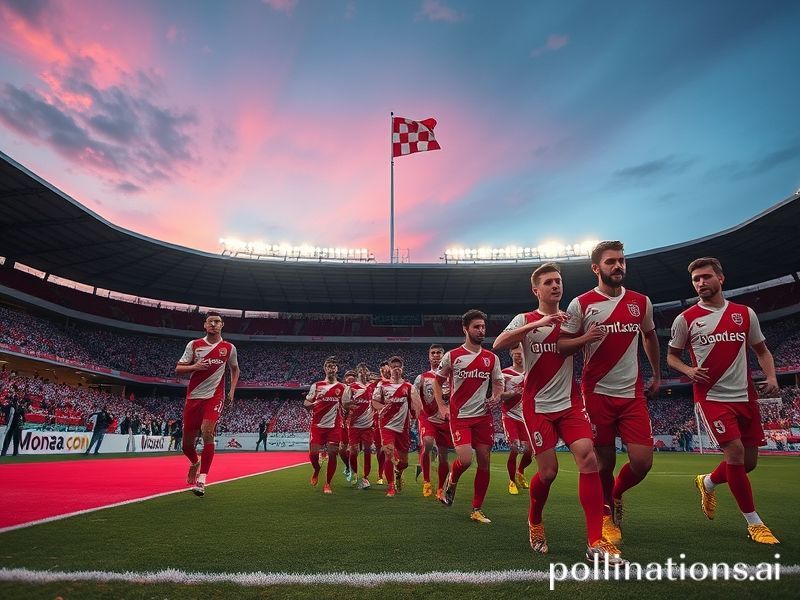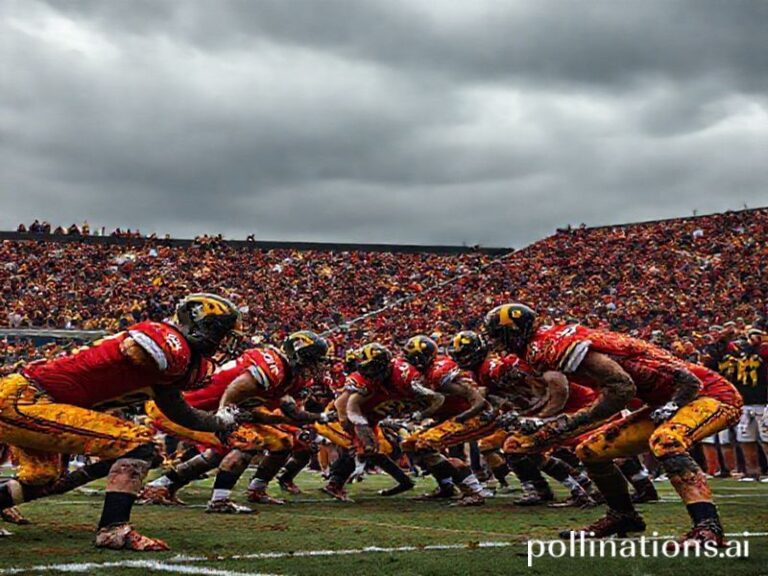Monaco FC: The Tax-Haven Underdog Rewriting Football’s Rules of Imperial Finance
Monaco FC: A Principality’s Glittering Anomaly in the Age of Football’s Imperial Overreach
By Dave’s Locker, International Desk
The first thing you notice about AS Monaco FC is that it shouldn’t exist. Not in the sense that, say, democracy in 2024 shouldn’t exist—more like finding a Fabergé egg in a food bank: gorgeous, valuable, and fundamentally out of place. A sovereign micro-state with the population of a midsized IKEA on a Sunday afternoon fields a team that has repeatedly punched above its weight class, sending the bigger, uglier kids of European football home with bloody noses and existential questions about net-worth-to-trophies ratios.
Look at the map. The Principality occupies 0.78 square miles, roughly the size of a generous duty-free lounge. Yet Monaco FC has gate-crashed the Champions League quarter-finals more often in the last decade than Arsenal, which is both a compliment to Monaco and the sort of insult that causes entire boroughs of North London to stare into their craft beer and wonder where it all went wrong. The club’s very presence in Ligue 1—France’s top domestic flight—feels like a clerical error that no one has bothered to correct, the sporting equivalent of finding Liechtenstein on the UN Security Council.
Globally, Monaco’s success is a Rorschach test for late-stage capitalism. Russian oligarchs, Emirati sovereign funds, and American private-equity barons have turned the beautiful game into a geopolitical Monopoly board, and Monaco simply skipped straight to “Pass GO, collect €200 million.” The club’s 2017 Ligue 1 triumph wasn’t just a trophy; it was a hedge-fund pitch deck in cleats. Young talents—Mbappé, Fabinho, Bernardo Silva—were harvested and IPO’d to the highest bidder faster than you can say “regulatory arbitrage.” Fans in Manchester, Madrid, and Munich now cheer lads who were, biologically and fiscally, incubated in a tax haven that views income tax the way most people view smallpox.
And therein lies the broader significance: Monaco FC is both a beneficiary and a symptom of football’s mutation into a transnational asset class. While FIFA still prints slogans about “football for hope,” Monaco’s existence proves that hope is now denominated in euros, preferably held in an offshore trust. The club’s stadium, Stade Louis II, is literally built on land reclaimed from the sea—an apt metaphor for an institution that has reclaimed relevance from the rising tide of super-leagues and petro-states. Every Champions League anthem played there is a gentle reminder that sovereignty, like center-backs, can be purchased if the price is right.
To the wider world, Monaco’s model offers a cynical blueprint: shrink your nation until it fits inside a gated community, slash taxes until billionaires arrive like moths to a flame, and field a football team just cohesive enough to launder prestige. It’s the nation-state as start-up, complete with seed funding from the House of Grimaldi and a burn rate that would make SoftBank blush. Other micro-states are taking notes. San Marino’s FA recently floated the idea of a “strategic partnership” with a Serie C side; Vatican City has begun scouting seminarians with pace on the wing. Somewhere in the Caribbean, a minister of sport is Googling “how to qualify for CONCACAF on zero percent corporate tax.”
Yet for all the eye-rolling, Monaco FC remains weirdly charming. Its ultras—yes, all eight of them—sing from the same hymn sheet as Dortmund’s Yellow Wall or Liverpool’s Kop, proving that tribalism survives even when the tribe is 38,000 residents and a stray labradoodle. The team still produces teenagers who run like their lives depend on it, largely because their next contract actually does. And once every few years, the principality’s casino lights hit the stadium just right, and you remember why the sport began: 22 people chasing a ball, plus several thousand chasing a dream, plus a handful chasing capital gains.
So here we are, citizens of a fractured planet, watching a team from a postage stamp compete among emirates and empires. If that doesn’t sum up 2024—where scale is meaningless, loyalty is negotiable, and success is taxed only if you’re foolish enough to stay—then nothing does. Monaco FC may be an anomaly, but in a world that’s forgotten how to be surprised, anomalies are the last honest thing we’ve got.







